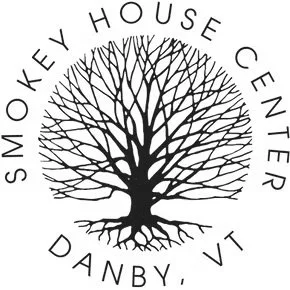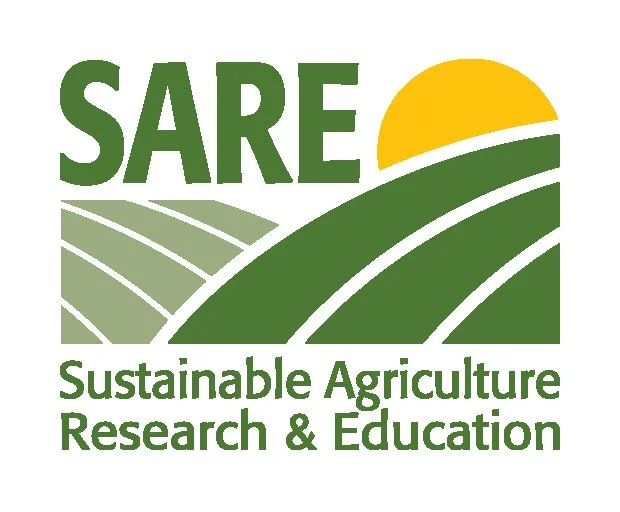
About the Northeast Forest Farmers Coalition
What is forest farming?
With roots in indigenous practices, forest farming is the intentional cultivation of crops under the protection of a managed tree canopy. These crops may be herbal, edible, decorative, or handicraft, and are also considered non-timber forest products. One of five USDA-accepted agroforestry practices, forest farming has many benefits:
Generating income from forestland, as either a supplement or an alternative to income provided through harvesting timber;
Increasing farm & forest resiliency through crop diversification;
Relieving pressure on wild populations of at-risk native understory plants by providing the herbal products supply chain with sustainably cultivated plant material; and
Reintroducing native understory plants into second-growth forests across their historic range, an approach referred to as “Conservation through Cultivation.”
Forest farming in the Northeast
There are some 2.5 million private forest landowners in the Northeast, who collectively own 80% of the forestland in the region. And northeastern farmlands contain millions of acres of forest. Of the 82.4 million acres of forestland in the Northeast region; an estimated 20% are associated with farm property.
The cultivation of commercially-valuable herbs under a forest canopy represents an intuitive strategy for increasing diversity on farms and forestland across the Northeast. It presents an opportunity to diversify on-farm income streams with low additional labor and costs by converting idle forestland into an economic asset without compromising forest health or timbering potential.
This project will increase and aid in organizing coordinated technical assistance that is currently lacking in the Northeast, drawing inspiration from work being done in other regions—exemplified by the Appalachian Beginning Forest Farmer Coalition (ABFFC).
Forest farmed crops
Our research and demonstration sites are focused on forest farming best practices for economically relevant native understory herbs. These plant species include:
American ginseng (Panax quinquefolius)
Goldenseal (Hydrastis canadensis)
Ramps (Allium triccocum)
Black cohosh (Actaea racemosa)
Blue cohosh (Caulophyllum thalictroides)
Bloodroot (Sanguinaria canadensis)
Solomon’s seal (Polygonatum biflorum)
Wild ginger (Asarum canadense)
Mayapple (Podophyllum peltatum)
Forest farming systems can include products from all forest strata: tapping trees for maple and other tree syrups, mushrooms grown on inoculated logs in the understory, and more.
History of this project
The Northeast Forest Farmers Coalition began in 2020 when students and faculty at the Yale School of the Environment put together a proposal to expand the model of forest farming technical assistance being provided in the Appalachian region into the Northeast. This idea grew out of Karam Sheban’s experience working with the Appalachian Beginning Forest Farmer Coalition (ABFFC) in Ohio, as well as conversations with Yale faculty about expanding the opportunities for agroforestry assistance offered through the school. A USDA-funded master’s project on plantings of wild-simulated ginseng led to published research in the journal Agroforestry Systems, as well as continued conversation around how to take forest farming research and education to the next level in the region.
These conversations involved stakeholders across the Northeast and in the Appalachian region as well. In partnership with a number of nonprofit organizations, universities, businesses and forest farmers across the northeast, Karam Sheban, Dr. Marlyse Duguid, and Dr. Joe Orefice submitted a proposal to the USDA’s Sustainable Agriculture Research and Educational (SARE) program to launch the Northeast Forest Farmers Coalition.
The project was informed through conversation with members of an advisory board, including:
Dr. John Munsell, Associate Professor and Forest Management Extension Specialist in the Department of Forest Resources and Environmental Conservation at Virginia Tech University and Program Director of the Appalachian Beginning Forest Farmer Coalition
Mike Farrell, CEO of The Forest Farmers
Dr. Susan Leopold Executive Director of United Plant Savers
Dr. Eric Burkhardt, Associate Professor of Ecosystem Science and Management and the Program Director of Appalachian Botany and Ethnobotany at Shaver’s Creek Environmental Center at Penn State University
Dr. Dave Ellum, Professor of Ecological Forestry and Dean of Land Resources at Warren Wilson College
The NFFC serves as a partner initiative with the ABFFC, and is committed to the sharing of resources to better serve forest farmers across the Northeast region and beyond.
Research & demonstration forests
Forested Research and Demonstration (R&D) sites anchor the project’s educational activities, serving as demonstration forests and host sites for educational workshops and events. See our Partnerships page to explore our network of demonstration forests.
R&D forests serve as educational hubs for NFFC project activities, showcasing both the principles of applied research as well as the active practice of forest farming. Keep an eye on the calendar for educational events coming to a forest near you.

Coordinating Partners and Funders
-

Northeast SARE (Funder)
-

Yale School of the Environment
Project Partners


















